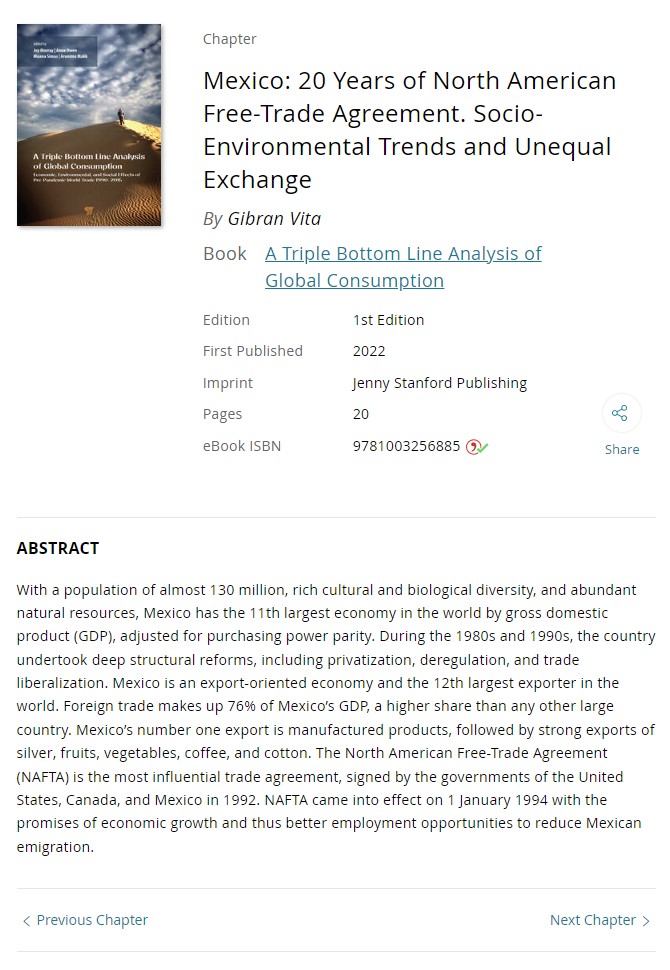With a population of almost 130 million, rich cultural and biological diversity, and abundant natural resources, Mexico has the 11th largest economy in the world by gross domestic product (GDP), adjusted for purchasing power parity. During the 1980s and 1990s, the country undertook deep structural reforms, including privatization, deregulation, and trade liberalization. Mexico is an export-oriented economy and the 12th largest exporter in the world. Foreign trade makes up 76% of Mexico’s GDP, a higher share than any other large country. Mexico’s number one export is manufactured products, followed by strong exports of silver, fruits, vegetables, coffee, and cotton. The North American Free-Trade Agreement (NAFTA) is the most influential trade agreement, signed by the governments of the United States, Canada, and Mexico in 1992. NAFTA came into effect on 1 January 1994 with the promises of economic growth and thus better employment opportunities to reduce Mexican emigration.


